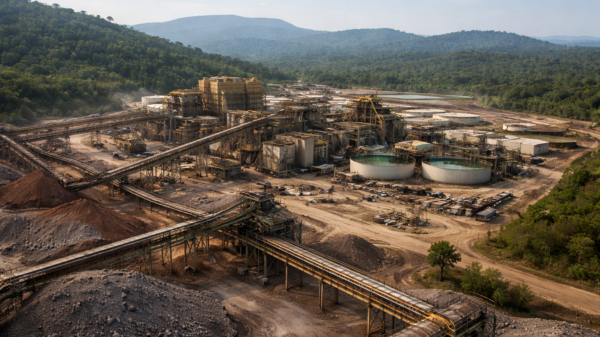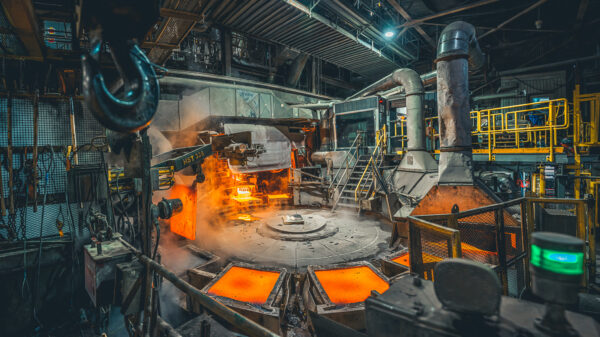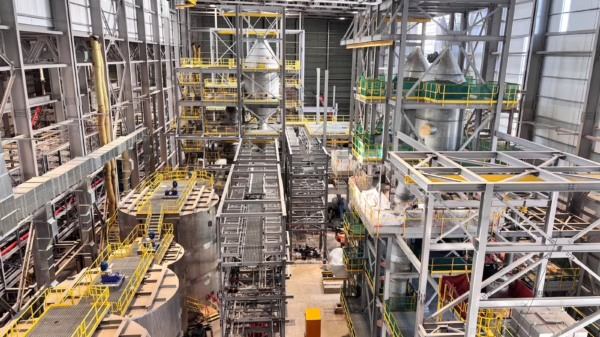The Canadian federal government is in talks with mining giant Rio Tinto Group (NYSE: RIO) regarding easing liquidity issues caused by the global steel and aluminum tariffs imposedb by the United states.
Industry Minister Mélanie Joly said during a visit to Saguenay, Quebec, on Thursday, that Ottawa had started talks with the company earlier in the week.
She said the government already offered funding to support Rio Tinto’s carbon-free aluminum smelting project at its Arvida smelter in Québec. She also stated she is open to talks on how Canada can help Rio Tinto with its liquidity needs. Furthermore, she called the tariffs damaging and “completely unjustified.”
A spokesperson for the minister confirmed Friday that talks remain ongoing but gave no further details.
Last month, U.S. President Donald Trump doubled global tariffs on steel and aluminum to 50 per cent. Also, Prime Minister Mark Carney said Canada will respond on July 21. The response will depend on how trade discussions develop between the countries by then.
Rio Tinto, one of the world’s largest mining companies, is dual-headquartered in the United Kingdom and Australia but runs multiple mines and refineries in Canada. It employs thousands of workers nationwide, including about 4,000 in the Saguenay—Lac-Saint-Jean region, according to its website. In 2023, the company announced a $1.4 billion expansion of its aluminum smelting operations in that area.
Read more: Rio Tinto shows interest in lithium offerings in Democratic Republic of Congo
Read more: Rio Tinto takes advantage of Argentina’s incentives program with $2.5B investment
Trump’s steel and aluminum tariffs pose serious risks
Separately on Friday, Quebec Premier François Legault announced a new energy supply agreement between Hydro-Québec and Aluminerie Alouette. Rio Tinto holds a 40 per cent stake in the international consortium, which operates a smelter in Sept-Îles.
As part of the deal, the consortium will invest USD$1.5 billion to modernize its Côte-Nord operations by 2045. Furthermore, it plans to spend half of that amount over the next five years. A media release stated the investment will help maintain 1,000 jobs in the region.
The new electricity pricing deal aims to balance risk and reward for all partners. It provides greater returns to Hydro-Québec when aluminum prices are high, while helping Aluminerie Alouette stay competitive when prices drop.
The new agreement will take effect in 2030, following the expiry of the current deal at the end of 2029.
Aluminerie Alouette’s stakeholders include Quebec’s investment agency QUALIUM, Austria’s Metall AG, Norway’s Hydro Aluminium, and Japan’s Marubeni Metals & Minerals.
Trump’s decision to double tariffs on steel and aluminum to 50 per cent poses serious risks for companies like Rio Tinto. These tariffs increase costs for exporting aluminum into the U.S., a key market for Canadian producers.
As a result, Rio Tinto could face declining revenues, disrupted supply chains, and reduced competitiveness.
Additionally, uncertainty from ongoing trade tensions may delay investment decisions or force cutbacks. The tariffs also strain cross-border business relationships and threaten long-term jobs in regions like Saguenay—Lac-Saint-Jean. For a capital-intensive industry like aluminum, these measures create volatility that undermines both planning and profitability.
.













